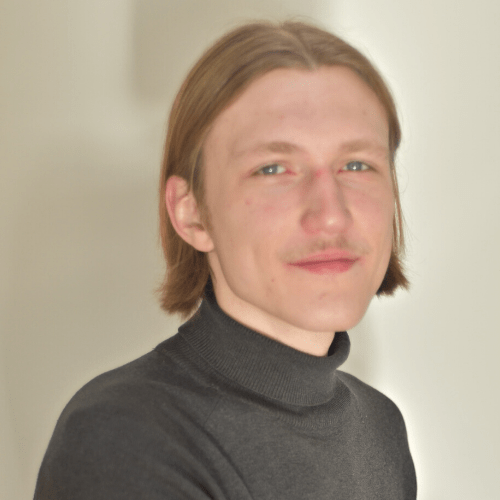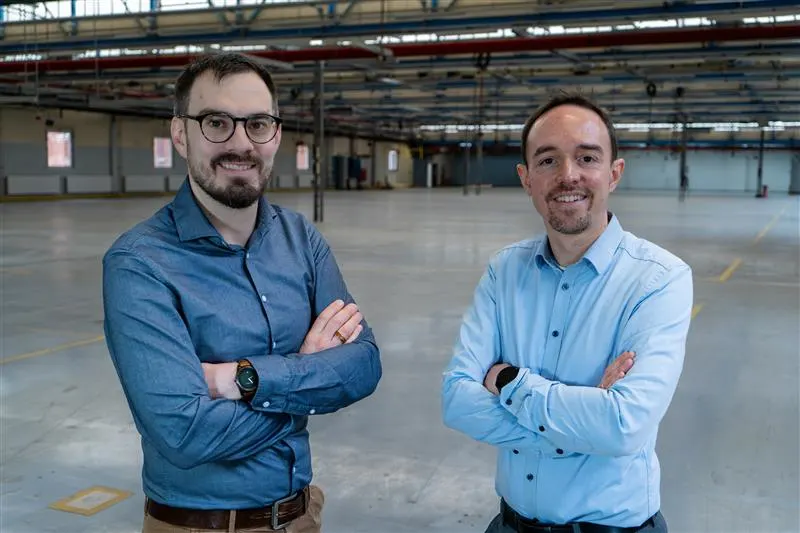As of today, almost 1Bn people worldwide suffer from various mental health issues, causing $2Tn to $5Tn lost in poor health and lost productivity annually. And with the coming of Covid 19, the problem has become even more pronounced, seeing 26% to 28% rise in the number of people grappling with major depressive disorder and various anxiety disorders in a single year between 2019 and 2020.
Even more so, if left unaddressed, the scale of the current mental health crisis in the US and Europe is projected to double in size by the year 2030, leaving us with an ever-more-threatening problem than the one we're facing today. - Nikolay Tretiyakov, co-founding partner at Leafy Tunnel
Considering the huge scale of the problem, it is no surprise that compounds as powerful as psychedelics are brought up in the context of changing this negative dynamic. The classic psychedelics (Psylocybine, LSD, DMT, and mescaline) work by overwhelming the brain’s serotonin receptors, causing the so-called “default-state network” to shut down temporarily. And as a consequence, the users undergo a rewiring of the old brain paths and connections, giving way to the appearance of a renewed brain.
Given these potent effects, it's quite evident why these substances had been so heavily popularized and used all across human history. To give just a few examples, one can think of big social phenomena like the opinions of ancient shamans deciding on the questions of war and peace, the counterculture of the 60s, as well as the modern-day role of these very substances in forming the biggest and most popular tech companies known today.
As innovation in the healthcare industry is booming, new startups are entering the market and VCs are offering favorable capital injections to promising solutions. One of the many promising innovations includes the resurgence of psychedelics - the very subject of this article.
Therefore, we have decided to examine this emerging field and connect with those involved in the psychedelic space across the CEE region to explain why it's an exciting field to be a part of and what are the possible ways of engaging with it.
Investing in Psychedelics: Q&A with Nikolay Tretiyakov, Co-Founding Partner at Leafy Tunnel
Leafy Tunnel is an early-stage venture capital firm investing in alternative medicine to address mental health and pain disorders.
What led you to focus solely and exclusively on psychedelics and cannabis?
On the macro level, we can see the appearance of huge-scale negative events drastically affecting our mental health – Covid, wars, oncoming economic recession, and on the other hand, we are recognizing the growing importance of mental health and wellbeing as core tenets of a well-lived life.
On the business side of things, we also see the appearance of the first big players – Beckley Psytech, Compass Pathways, ATAI Life Sciences, as well as regulatory readiness to approve psychedelic-assisted therapies (i.e. the phase III trial of MDMA-assisted psychotherapy for PTSD by MAPS) which adds significant credibility and high hopes for FDA and later on, EMA approvals.
Moreover, we also observe an influx of talented, young researchers driving this technological shift forward and a significantly increased ability to find and attract clinical trial participants.
All of which leads us to have very high confidence in the near-term potential of the field.
Why is it a good opportunity for outsized, VC-level returns?
So, the first part of it is the sheer size of the mental health market which is currently at $1.3Tn across Europe and the US alone, while it is estimated to more than double by the year 2030. Then, on the other hand, you also have the low effectiveness of traditional mental health treatments, among those SSRIs and their adverse effects: restlessness, weight gain/loss, sexual problems, and more. That said, the psychedelic market isn’t only in custom compounds but in assisted psychotherapy, integration experiences, and literally anything surrounding the substances. Thus, we have a market ripe for disruption – a novel and superior solution to mental health problems, defensible market advantage (through IP), and a cultural/ideological shift towards stigmatized psychedelic compounds.
Why psychedelic research would need private funding in the first place?
Answering in the shortest way possible – a researcher usually starts out the project at a public institution, then finds something and… needs money to buy out the IP rights, run clinical trials and resources to commercialize the research, thus – they need money to move out of the lab and into the real world which could take anywhere from $300M to a $1,5B solely developing a pipeline of psychedelic compounds into licensed pharmaceutical medicines.
A Drug Lab in the Vilnius City Centre: Q&A with Laura Korsakova, CEO, and Founder of Psylink;
Psylink is a biotechnology company offering a novel solution to psychedelic drug development.
What are you working on and how did you get inspired to begin with?
From what I can recall it was a long time ago when I first became curious about the field - think it was the year 2017, which is the time when I was doing my PhD and fell in love with the topic. The biggest thing that captivated my attention was the sheer possibility of grappling with the most dazzling of all questions - the functioning of the human brain. And then COVID came, leading me and my partner to witness firsthand the absolutely catastrophic mental health drawbacks of the pandemic...
Now about our company - Psylink. On a general level, we work on scalable and eco-friendly drug manufacturing producing clean and high-quality psychedelics through the means of biosynthesis. After fully establishing our production capabilities, we can either boil down to producing classic psychedelics as an API provider and/or start working on our own, patentable, and custom molecules.
Are you the only Baltic company working in the field, if so - why?
From what I know yes. The first reason why it's the case is because of stigma surrounding the field - many people don't view it as credible the moment they learn that these drugs are illegal. Secondly, there's a lot of instability coming from the regulatory environment and politics, all of which puts a lot of constraints on what you can do. For example, we should always monitor the lab and report exactly on all aspects of how we're doing the research, and it's very, very time and labor intensive, with a quite lengthy and rocky path towards achieving any practical results.
To sum it all up - just imagine how unstable and commitment-heavy it is and you'll get a pretty good picture of why there're so few working on these kinds of companies
How did you work around the regulatory hurdles on the way to establishing a company and what would you need to fully realize your vision?
Well, to kickstart the research was pretty smooth yet tedious, we had to fill out a big package of documents to study Schedule 1 substances (tryptamines) and apply for a research license from regulatory authorities in Lithuania. While doing so, we had to be very (very!) precise about how we were going to study them, when, and under what circumstances. But on the other hand, the permit covers only the research-related activities connected with the development of psychedelic compounds. In case we want to start large-scale manufacturing, commercial activities, or sell our product abroad we'll have to get separate licences (GMP, GDP) for each type of the aforementioned activities.
Yet on the positive side of things, I think there's a great reason to believe that the currently ongoing late-stage FDA trials are going to end up successful and that EMA will (as it usually does) follow the suit pretty soon afterward.
The First European Clinic to offer Ketamine-Assisted Psychotherapy: Q&A with Stanislav Milotinský, CEO and Founder of Psyon
Psyon is a specialized professional facility focusing on the therapeutic use of psychedelics in the treatment of mental illness.
Why did you decide to start the clinic and how did it come about?
Well, most of us are clinicians or researchers working and publishing on the topic of psychedelics starting around the year 2014 when we did our first psilocybin study on healthy subjects. A couple of years after, we began thinking about practically applying our knowledge and considered establishing a clinic. At the time there was a bit of financial uncertainty on how to kickstart the company and where to find the money to do this and luckily for us - we were approached by Miton Investment Group who've followed our work all along and asked us whether we wanted to launch something together.
Why did you specifically choose to start with ketamine?
We believe it's always best to start small and with as less friction as possible - which is exactly the reason why ketamine is the perfect compound. You see, the substance has been well researched and broadly used in mainstream medicine for decades now. Thus, it's much easier to prescribe those kinds of treatments and much, much less difficult to find specialists who understand and are capable of working with this substance.
What is your long-term vision for the company and field?
We want to build a holistic, all-in-one psychotherapeutic clinic focusing not only on psychedelic compounds but on all kinds of mental health services: regular psychiatry and clinical psychology/psychotherapy, mindfulness, expressive therapies, physiotherapy, and more. By doing so, we aim to provide everything for wellness and mental well-being while also promoting and legitimizing psychedelic-assisted psychotherapy in general as potentially (there is still some research needed for other substances) credible and robust treatments. Meanwhile, we're planning to carry on with our research and clinical trials together with our partners to make moves in legitimizing psychedelics within the scientific/regulatory environment.
So in a nutshell, we definitely have high hopes for the prospects of further reasonable deregulation and use-cases across the healthcare system after more and more successful clinical trials but meanwhile - we're also laying the groundwork to make it happen and do everything possible right at the moment to help people and the field gain more momentum.
Polish Regulatory Framework and Research of Psychedelics: Q&A with Filip Duski (J.D), a Legal Consultant at the Polish Psychedelic Society
Polish Psychedelic Society is an initiative established mainly for the purpose of reforming Polish law to broaden a very narrow scope of the use of psychedelics in medicine and science.
Could you please tell us a bit more about the current state of Polish law in regards to psychedelics?
As of now, “classic” psychedelic substances (LSD, psilocybin, DMT, mescaline) are classified into the schedule 1 list and thus - are treated as highly addictive (and without medical potential) and accordingly - practically banned not only from human prescriptions, but also from the realm of research which includes giving a psychedelic substances to participants of a scientifical experiment. On the other hand, there's an ever-growing body of work proving the exact opposite - both mice and humans simply don't seek psychedelic experiences immediately after tripping once. On a positive note, though, there are no limitations on experimenting invitro (on molecules) in the lab, except the fact that there's need to obtain consent for getting and possessing these substances legally.
Can you please tell us a bit more about the ongoing projects by Polish scientists?
Definitely, the first person that comes to mind is Urszula Kozłowska who's just recently received a second grant to study the possibility of select psychedelics (DMT and psilocybin) in inducing the healing of neurodegenerative diseases through psychedelic-induced neurogenesis.
Thus far, her first in vitro study on murine microglia cells had found DMT and psilocin to downregulate the proteins responsible for the inflammatory phenotype. Having established that, she was able to obtain the most recent, second grant to further test the previous findings in vivo (on a mouse model) in order to find out whether the psilocybin will slow down neurodegeneration and to see how it affects microglia functions in vivo.
Yet another project we have at hand is the work of Prof. Gołembiowska and her team in studying the mechanism of psilocybin and ketamine and their fast antidepressant effects.
To research this topic further, the research team has looked at the effects of these substances on the normal and stressed (those having chronic unpredictable stress used as a rodent model of depression) rat brains while trying to correlate neurochemical effects with changes in animal behavior observed through anxiety, motor activity, and cognitive functions.
Furthermore, I'm aware of Grzegorz Kazek from Jagiellonian University's Medical College who's conducting an interdisciplinary study on psychedelic users attempting to assess the sustained effects of taking these substances.
As far as I know, the unique feature of this research project is the fact that it will include a multidimensional, bio-psycho-social approach which includes clinical evaluation of psychopathology, cognitive and neuropsychological assessment as well as peripheral blood neuro biomarkers assays coupled with establishing motives, attitudes, and prognosis of psychedelic use in the context of self-medication. When the research is finalized, the results will be transferred to local drug prevention and mental health organizations and institutions
Probably the last example I can think of is a research project done by a team of scientists from Nencki Institute of Experimental Biology PAS, SWPS University of Social Sciences & Humanities, and Jagiellonian University. Generally speaking, the team collected and analyzed data from a little over 2 500 survey respondents to find out the combined effect of psychedelics and meditation. At the end of it, the study has found that a higher number of lifetime uses of psychedelics predicted greater positive and lower negative emotional reactivity, greater reflection, and internal state awareness, as well as reduced rumination tendencies and public self-consciousness
What could be the possible legal changes needed to advance the field in Poland?
There're two ways in which we approach this: the first is through substance rescheduling and the other being is to move forward with scientific experiments. The first approach is rather straightforward and simple - you have to convince the ministry of health to rewrite the scheduling (An act on counteracting drug addiction art. 44F) and basically, it changes immediately if/after we persuade them. An example of such a case would be codeine, which has been reclassified from group II-N to group III-N, effectively enabling less strict regulation against it. Yet another option, though, is to run experiments on either humans or animals but to do so, you need permission from the bioethics commission. Here, there're two kinds of medical experiments we're interested in:
1) Medical treatment experiment, the purpose of which is to cure a given patient with experimental medicine.
2) And medical research experiment, which is made to broaden the general medical knowledge and can involve both healthy and unhealthy people.
Having that said, the flipside to the second approach is that this kind of research has to be first defined as having minimal-risk by a qualified doctor. Expectedly, If something goes wrong (s)he could be either sued by a participant or accused by a prosecutor and theoretically, even imprisoned. Oddly enough, the previously codified "insignificant risk" (before 2021) has turned into a more restrictive "minimal", showing a slight tightening of the definition.
Yet still, the law is pretty vague in terms of how the punishment works not only from my practice but also from what I hear throughout the psychedelic community - I simply don't see any people getting severe repercussions for careful and responsible research. Yet there are reports on legal problems for those organizing the so-called Ayahuasca ceremonies but they clearly have nothing to do with scientific research.
Therefore, we are working on both improving the psychedelic's public image through various events (like a scientific conference at the Warsaw University) and research in the hope, that one way or another we'll eventually break the negativity and stigma surrounding those substances.
The Danger of Drawing Premature Conclusions: Q&A with Eva Césarová, Co-Founder of the Czech Psychedelic Society and a Media/Creative Coordinator at PSYRES Foundation.
The Czech Psychedelic Society was founded in order to establish a platform for an open discussion on the risks and benefits of the use of psychedelic substances.
PSYRES Foundation is an organization helping secure funding for Czech scientific projects focusing on innovative mental health treatments.
Could you please tell us more about why it's so dangerous to overemphasize the promise of psychedelics?
Long story short, the issue from which all others spring is the sheer market dynamics of investing in an underresearched field at the height of its hype cycle.
So, first and foremost, it's quite apparent that whenever you invest in something you expect to earn multiples on an investment and your best bet is to support an overly positive, even be a cheerleader of the field. In reality, though, the field has recently started seeing its first critical pieces that were well summed in this article by WIRED citing Imperial College London's recent study on the use of psilocybin for depression therapy which concluded with only "a marginally better result when compared with traditional treatments." Yet another critical piece cited in the same article came out from Rosalinda Watts, who was the clinical trial lead at Imperial College regretting her initially "simplistic and potentially dangerous narrative around psychedelics" while claiming that a "substance itself isn't a magic reset button" but rather "a tool for [accelerated] therapy on steroids".
You may then ask - what happens when the integration isn't there or it’s insufficient?
Psychotic episodes, trauma, and in case the guide overseeing the procedure isn't a good person - sexual or emotional abuse leading to much deeper damage than the problem you were attempting to solve.
Having that said, consider the practical implications of "moving fast and breaking things" so common in the startup world. And to understand it practically, just look at the illuminating, although fictional story of Gaia Health written by North Star Project.
At the beginning it looked pretty optimistic: millions in venture funding, a unique insider position of the founder, relaxing psychedelic regulations, and literally no one to compete with what seemed like a revolution and a once-in-a-lifetime opportunity. But then the first competitors came - with cheaper, and much more aggressive promotion and after a short while, the financial prospects of Gaia started to weaken, leading the company's investors to start pulling the levers in an attempt to shift it.
Soon after, the upcoming dynamics had become a kind of a race to the bottom, all the way up to a point where the psychedelic experience facilitators have become mere strangers with lackluster experience and questionable utility.
Credit: We Will Call It Pala
The result? An even deeper automatization and commercial adaptation of the company to sell more and more sessions while providing little to no integration therapy which is oftentimes the most crucial, yet expensive and time-demanding part of the whole process.
When the founder of the startup rebelled against the board - she was simply replaced with a seasoned M&A professional tasked with making a good buck on the acquisition.
As a result, Learie [the founder] had literally become trapped in between the underlying market incentives while turning into someone whose only goal was to seek the so-called "shareholder value."
So to conclude, I believe that there is definitely a huge upside and promise in the psychedelics but we should be very, very cautious not to hurry things up too much because doing so may lock up the doors once again - and we can't predict for how long it will be this time if it does.
Concluding Thoughts
It is reasonable to believe that the global mental health crisis is here to stay and will accelerate if not properly addressed. The controlled usage of psychedelics seems to be one of the good enough ways, worth looking into. It’s worth noting that, this field is characterized by its strong potential for venture-level returns and a significant positive impact, which makes it ripe for exploration from many angles - be it in research roles, as a space for private investments, or for creating a company in one of CEE's biotech hubs.
What is clear from the observations, is that although the full legalization is yet to come, there are already many avenues and ways of starting out in the field - through research, by commercializing legal, non-classic psychedelic therapy to the broader public, by lobbying the national or on the European-wide level (through EMA). As a result, there are more than enough reasons to seriously consider the prospects of psychedelic startups and research in the years to come, and it's worth keeping close tabs on this budding industry.
Related Posts:
Startup Podcast You Need To Know (by Valerie Stupnikova, Vestbee)
Startup Vocabulary You Need To Know (by Valerie Stupnikova, Vestbee)
How To Successfully Get Grant Funding For Your Startup? (by Jure Tomc, Director, Cresco Innovation)







